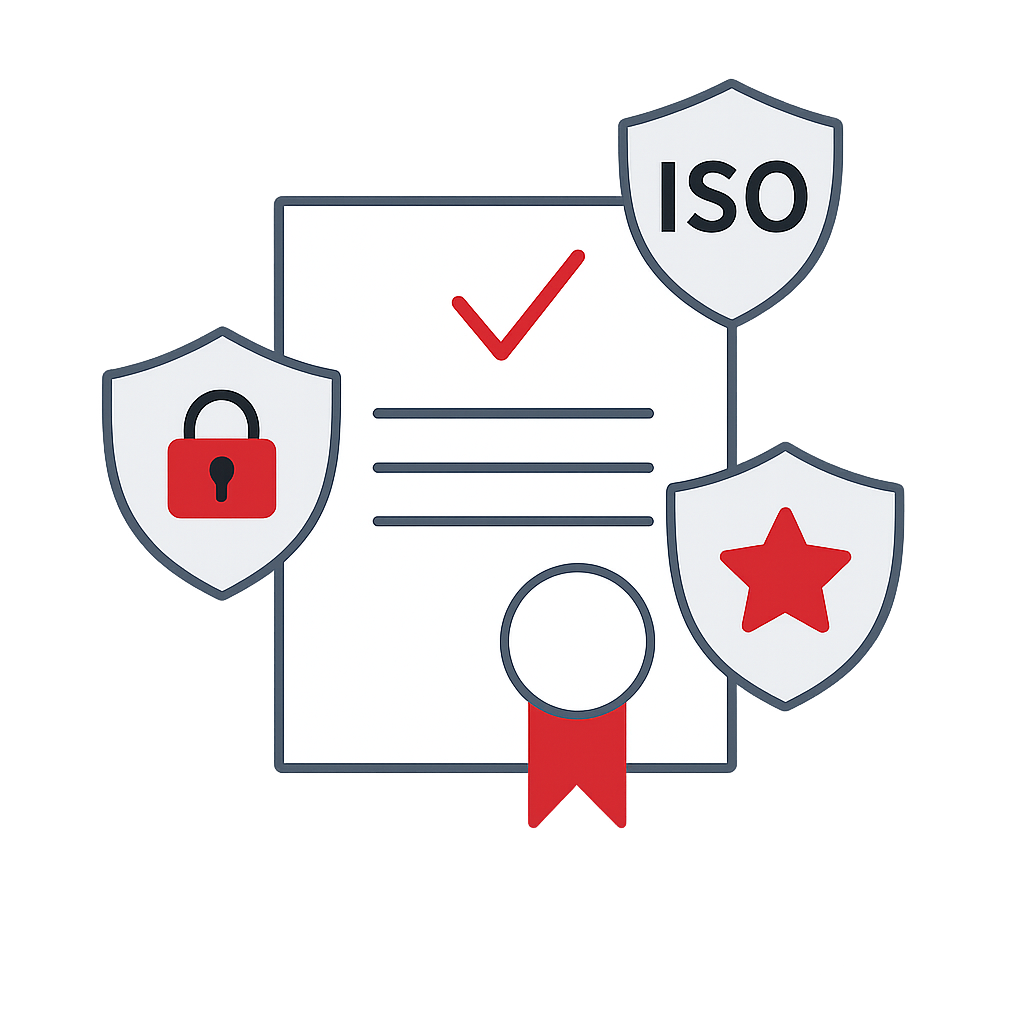

Jakub Bílý
Head of Business Development
Modern software development is not just about code - it is about trust, security, and quality. The IT industry follows international standards that define how companies protect data, manage risk, and deliver reliable digital solutions. Understanding these certifications helps businesses choose the right partners and stay compliant in global markets.

In the IT world, compliance and certification ensure that organizations follow clearly defined rules for data protection, service quality, and operational continuity.
These standards do not apply to every company equally - but understanding them helps businesses make informed choices when selecting partners or suppliers.
The main types of certifications and frameworks can be grouped into three categories:
Security standards are designed to protect information, infrastructure, and systems from unauthorized access and data loss. Among the most recognized are ISO 27001, SOC 2, SOC 2 Type II, ISO 27017 (for cloud security), and CSA STAR (for cloud assurance). They provide clear frameworks for information security management, access control, and risk mitigation.
Other standards like PCI DSS for software development ensure that payment-related applications handle data securely, while ISO 22301 focuses on business continuity and resilience.
Compliance frameworks define how companies meet legal or regulatory obligations within specific industries. For example, HIPAA compliance software vendors must follow strict data protection rules in healthcare. Similarly, PCI DSS applies to systems processing payment information, and GDPR governs personal data protection in the EU.
The ISO 27701 standard builds on ISO 27001 and focuses on privacy information management. In healthcare and medical software, some organizations also adopt ISO 13485, which sets quality requirements for products and services in this domain.
Quality management and process control standards help organizations maintain consistent results and deliver reliable software. Examples include ISO 9001, ISO 20000, and CMMI — all focused on process optimization, quality assurance, and long-term efficiency.
Both standards relate to quality management but serve different purposes.
- ISO 9001 applies to most industries and focuses on customer satisfaction and continuous improvement.
- ISO 13485, on the other hand, is specific to medical and healthcare companies, requiring additional controls for risk management and traceability.
Knowing the difference between them helps organizations choose the right quality framework for their field.
(Especially in the USA, EU, and the UK)
These combinations are often required in enterprise RFPs or government tenders to ensure that vendors meet strict data security, privacy, and quality standards.
Even when a company is not certified, aligning processes with frameworks such as NIST CSF, Cyber Essentials, or ISO 27017 can demonstrate a commitment to responsible IT practices.
Compliance and certification frameworks represent the foundation of secure, high-quality, and reliable software development across the world.
They serve as a common language between clients, vendors, and regulators, helping ensure transparency and trust.
While not every IT company needs to hold every certificate, awareness of these standards is essential for working in enterprise environments and meeting modern expectations for security and quality.


Jakub Bílý
Head of Business Development